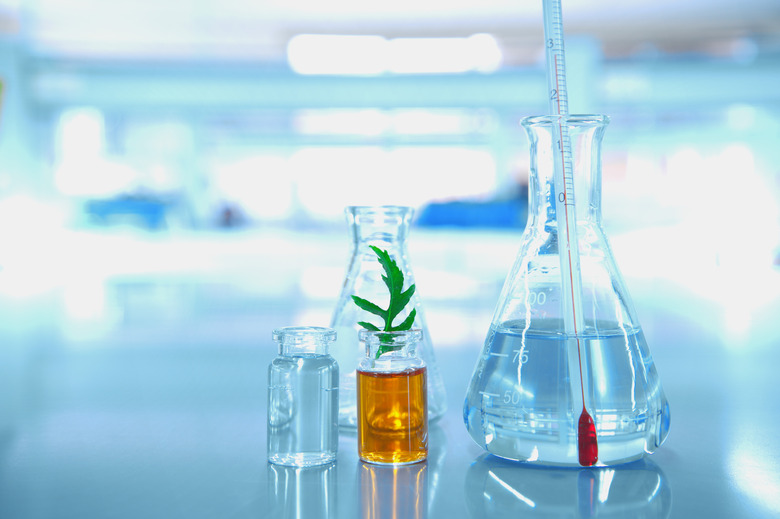What Factors Influence The Rate Of A Chemical Reaction?
A chemical reaction takes place when particles collide. If they collide in the correct orientation and with enough energy, then a reaction takes place. If they do not collide, there can be no reaction. Since reactions are dependent upon collisions and energy, factors affecting these parameters can either speed up or slow down the rate of reaction.
What Affects the Rate of Reaction?
What Affects the Rate of Reaction?
Reactant Concentration: If you have a higher reactant concentration, there is a greater chance of collisions and thus a greater chance of the right collision taking place. At a lower concentration, there isn't as great of a chance that the reactants will collide in the correct manner in order to yield product. In general, this means that greater concentration means more collisions per unit time and faster reaction rate.
**Temperature:** The kinetic energy associated with particles increases with temperature. As such, the more energy a particle has, the more it bounces around. The more it bounces around, the more likely it is to collide with another particle and yield product. For this reason, the rate of reaction greatly increases with temperature. On the other hand, it decreases as the temperature decreases.
**Pressure:** When molecules are closer together, they are more likely to collide. An increase in pressure increases how close molecules are to each other. As a result, they will be more likely to collide and react. On the other hand, a decrease in pressure results in fewer collisions and thus a slower rate of reaction.
**Surface Area:** The more surface area there is available to react with other molecules, the faster a reaction takes place. More surface area means more collisions. And more collisions means more chances of the correct collision taking place.
If a solid reacts with a liquid, the reaction will happen faster if smaller pieces of the solid are used. This is because with smaller pieces, there is more surface area for the solid to interact with the liquid. Thus the reaction can proceed faster. The molecules on the inside of the solid don't have to wait as long to interact with the liquid. This means that in general, the greater the surface area, the faster the reaction rate.
Phase Effects: When two components are in the same phase they collide more often. For example two components that are both miscible liquids will collide more often than if one was a solid. The same is true if both are gases. Difference in phase can make the reaction more difficult because there are fewer collisions. As a result, phase can play a big role in how fast a reaction proceeds.
**Catalysts:** Catalysts always speed up a reaction. They are substances that participate in a chemical reaction by increasing the rate of reaction but are unchanged by the reaction itself. Catalysts act by lowering the activation energy or the distance to the transition state.
Catalysts are vital in many biological reactions. Without a catalyst (often an enzyme) many of the reactions humans need to survive would occur too slowly. The addition of protein catalysts speeds things up.
TL;DR (Too Long; Didn't Read)
The rate of reaction is sped up with: higher reactant concentration, higher temperature, higher pressure, greater surface area, catalysts and when the reactants are in the same phase.
The rate of reaction is slowed down by: lower reactant concentration, low temperature, low pressure, lower surface area and the reactants being in different phases.
Cite This Article
MLA
Gupta, Riti. "What Factors Influence The Rate Of A Chemical Reaction?" sciencing.com, https://www.sciencing.com/what-factors-influence-the-rate-of-a-chemical-reaction-13710452/. 16 February 2020.
APA
Gupta, Riti. (2020, February 16). What Factors Influence The Rate Of A Chemical Reaction?. sciencing.com. Retrieved from https://www.sciencing.com/what-factors-influence-the-rate-of-a-chemical-reaction-13710452/
Chicago
Gupta, Riti. What Factors Influence The Rate Of A Chemical Reaction? last modified August 30, 2022. https://www.sciencing.com/what-factors-influence-the-rate-of-a-chemical-reaction-13710452/
